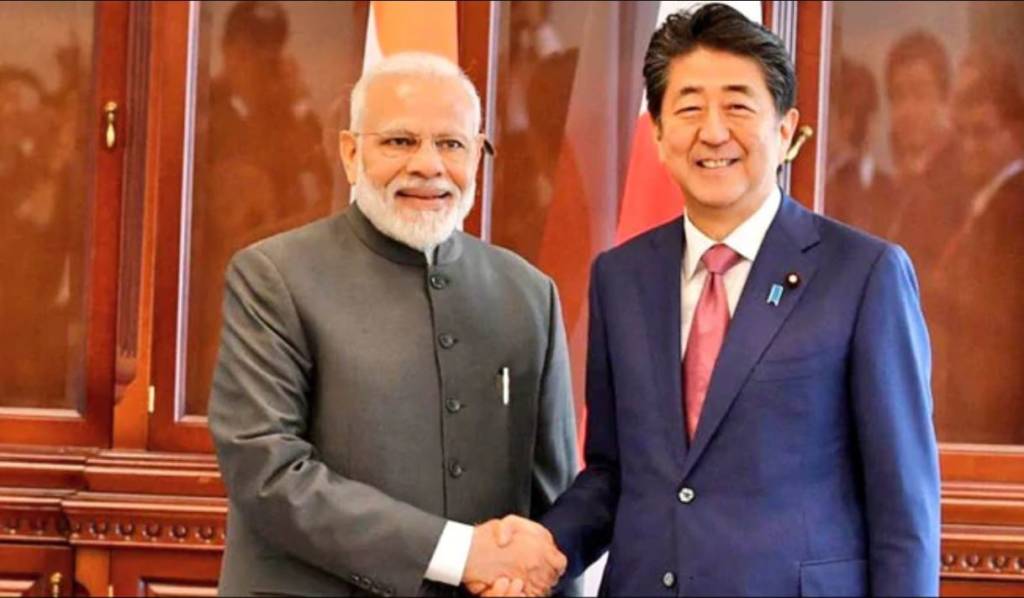Nothing on the international arena matches the level of camaraderie shared by Prime Minister Modi and his Japanese counterpart, Shinzo Abe. If Abe has made exceptions for anyone, it has to be PM Modi. In 2018, for instance, Abe hosted a private dinner party for PM Modi- a remarkable departure; the Japanese are generally conservative when it comes to such personal gestures.
In spite of that, we can safely say that the camaraderie between the two leaders has not blossomed into strong business ties. Even as Japanese companies are shifting production out of China, most of them have given India a miss. A variety of factors have kept the Japanese businesses away from India, including the Opposition’s unfriendly behaviour in India and a more lucrative Vietnamese offer.
Last month, a total of 87 companies signed up with Japan’s Ministry of Trade, Economy and Industry to move the manufacturing units out of China, with 57 moving back to Japan and 30 to different Southeast Asian nations like Vietnam, Thailand, and Laos.
Vietnam grabbed the bulk of Japanese companies moving to new foreign locations out of China. Half of the 30, that is, 15 enterprises went to Vietnam. According to the Japan External Trade Organization (JETRO), six out of these 15 businesses were large enterprises while the rest were small and medium-sized enterprises (SMEs).
Recently, Abe also spoke to his Vietnamese counterpart, Phuc. Abe said that Japanese businesses receiving government support to expand supply chains have chosen Vietnam. This corroborates how Vietnam has managed to prevail over India in attracting Japanese firms walking out of China.
But, what is holding back India from attracting these Japanese companies, and why is Vietnam taking away most of the Japanese enterprises exiting China, even though PM Modi and Japan’s PM Shinzo Abe share great camaraderie? Yasuyuki Murahashi, Chief Director-General, JETRO- a government-related organisation, to promote mutual trade and investment between Japan and the rest of the world, seems to have an answer.
In May, when Japan started encouraging its companies to shift manufacturing out of China, Murahashi had said, “Even though, it is an excellent opportunity for India to attract Japanese investments for this it will have to create a conducive environment for them. However, India is not very strong on these parameters currently, and therefore has to compete with Vietnam, Indonesia, and other ASEAN countries for attracting Japanese investment. Japanese companies also see economic policies of other countries, and look for the best place to produce and do business.”
Japan wants to reduce its dependence on China and thus shift manufacturing bases out of China. But, the Japanese government will not pinpoint a country for diplomatic or geo-strategic reasons. It is essentially the Japanese businesses who have to take a call on the country that they choose for establishing new manufacturing plants. Therefore, beyond point camaraderie between PM Modi and Abe, it won’t help India in so far attracting Japanese businesses is concerned.
The JETRO chief had also cautioned, “So, in post corona scenario, if they want Japanese investment, Indian central and state governments will have to think of new policies. We look forward to India more.”
To its credit, there are many things which Vietnam has done right including minimising red-tape investment in infrastructure, education, and health. An average Vietnamese is more skilled than an average Indian, thanks to the skill-based education system. The country has less volatile currency and has been competing closely with India in the World Bank’s Ease of Doing Business rankings.
We cannot complain about companies if they choose Vietnam over India. But, it is imperative to note that there are domestic political reasons also that have held India back. While many state governments like Assam, Haryana and Uttar Pradesh have tried to enchant investors, several opportunities in other states have been squandered too.
Take for instance Andhra Pradesh- last year, ET reported that Japan had cautioned the Jagan Reddy government against reducing tariffs on purchase power agreements (PPAs), as it would harm investor confidence. Such volatility in government policies drives away investors and foreign companies.
Also, in the case of Maharashtra, a lot of progress was made on the Mumbai-Ahmedabad Bullet Train project, but then the Uddhav Thackeray government questioned its feasibility. The Maharashtra CM said, “The priorities of development should be decided after looking at the financial condition of the state. Just because someone is giving us a loan at low-interest rates or without interest, we should not burden ourselves… and then take lands of farmers…It’s not feasible to take care of the ‘white elephant’ (bullet train).”
Now, it is being believed that the project will fail to meet its 2023 deadline.
Similarly, in the Northeast, Japan wanted to invest billions in infrastructure. PM Modi and Shinzo Abe were also slated to attend a summit towards the fag end of last year in the Northeastern city of Guwahati. But then the anti-CAA riots in the Northeast and Assam managed to get his visit postponed. Such developments send a very negative message to multinational companies because stability, and law and order form a part of an enterprise’s business strategy.
India deserves to lead the world growth in the 21st century alongside Japan at the expense of China. And therefore, it must fast-track reforms and battle political opposition, otherwise, Vietnam will continue to make the most out of Tokyo’s attempts to cut dependence on China.
